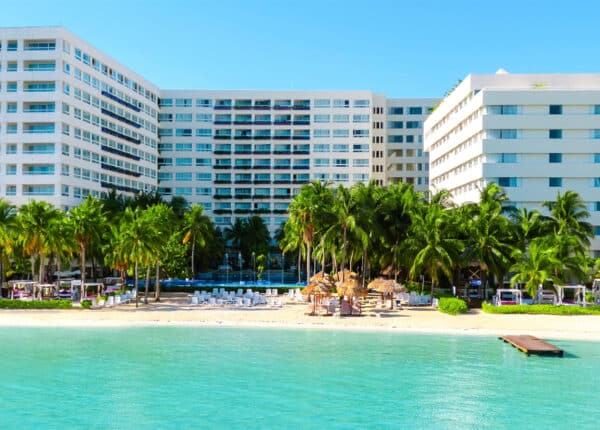Getting Local Government in Jamaica to Work
What local government means if we can get it to work
Last week I was driving around Montego Bay with the NSWMA regional manager and stopped by the Retirement dumpsite. As I drove around, I thought to myself that much of the challenges we continue to face — at the NSWMA, and nationally — have so much more to do with the lack of order, discipline, and civic pride (or I should just say how people are brought up), than it has to do with resource availability.
As I visited the Retirement dump, it was clear to me that not only does it need a lot of work, but that many of the environmental conditions as it relates to the people and children have been ignored. People are allowed to live around and on the dump, including children, which is a major health hazard waiting to happen. In fact, children there play at the dump as our own children play in our yards or parks.
This, I think, speaks to the ineffective way in which Jamaica has sought to enforce environmental standards – by focusing on it after events happen, than being proactive and ensuring that people do not live in these conditions.
But then again, can we blame the people who are to enforce environmental standards when people are allowed all over the country to squat where they please? Maybe this is just another squatting community in the eyes of our local and central government.
As I drove around Montego Bay (in order to view the numerous complaints we get about garbage pile up in the city), it became very clear to me that: (1) the problem of garbage pile-up has less to do with the NSWMA and more to do with our means of disposal; and (2) that based on how garbage is disposed of, we can never afford enough trucks to keep the city clean.
All around the town I spotted people just dumping garbage in piles on the roadside outside of shopping centres, and even where skips were visible, more garbage was thrown outside of the skip than in it.
I was also told, and saw for myself, that NSWMA trucks were picking up the garbage. Then by the time we drove past a few hours later, more garbage was piled up. So, in fact the truck sometimes must make two trips per day.
Based on what I saw, there is no way that NSWMA can provide enough trucks to manage this situation.
The way we dispose of our garbage requires significantly more resources for the NSWMA, which eventually means that Government inevitably has to raise taxes as the cost of providing the service is much more than anticipated.
I hope everyone sees this link.
The main problem, as I see it, is the lack of enforcement of order and discipline in the city, which is not peculiar to Montego Bay. The maintenance of public order is the main responsibility of local government, and this is where I think local government has failed. This responsibility also must rest with local and not central government.
The problem we have with local government is not that it is irrelevant, but that it is dysfunctional. So, in my view, what we need to do is to get local government to work and we would see a significant improvement in our economic and social development. This is because no economy or society can move forward without law and order.
The question, therefore, is why can’t this be done by central government and just get rid of local government? This is the argument that many people make, but this again can lead to greater inefficiency and facilitate corruption.
This would be because the other advantage of local government should be a check and control of central government. But this has not worked, as many times it seems as if local government is nothing more than an arm of central government, especially when they are both run by the same party, and it seems impotent when controlled by the Opposition.
The reason for this ineffectiveness is because there is no independence of local government. So when both branches of government are controlled by the same party, the fact that it is the ruling party that appoints candidates for local government makes it an extension of central government.
And when they are both controlled by opposing parties, the central government many times starves local government of resources because the local government funds are controlled by the former.
This is the challenge that local government faces in Jamaica and why it is ineffective.
What we need to do, therefore, is carry out proper reform which would then make local government more effective and accountable to the people, such as direct election of mayors by the people rather than “the chosen one” from the political councillors. In that case, it wouldn’t matter to people who controls the councils, as the mayor would be independently elected by the people.
If this were so, then local government would be much more effective in things such as proper zoning, enforcement of order (such as removal of illegal vending), and clean commercial areas.
This lack of any autonomy for local government is evident in the debates, where much of the debate has centred around things being done at the central government level, rather than anything to be done at the local government level.
The reason for this is simply that parish councils are basically impotent on their own as all the action happens at central government.
Until this is addressed, we will continue to have weak and ineffective local government, lack of public order, and possibly the continuation of improper waste disposal — partly because of lack of effective local government and partly because of the lack of pride by our people.
Dennis Chung is a chartered accountant and is currently Vice President of the Institute of Chartered Accountants of Jamaica. He has written two books: Charting Jamaica’s Economic and Social Development – 2009; and Achieving Life’s Equilibrium – balancing health, wealth, and happiness for optimal living – 2012. Both books are available at Amazon in both digital and paperback format. His blog is dcjottings.blogspot.com. He can be reached at drachung@gmail.com.







